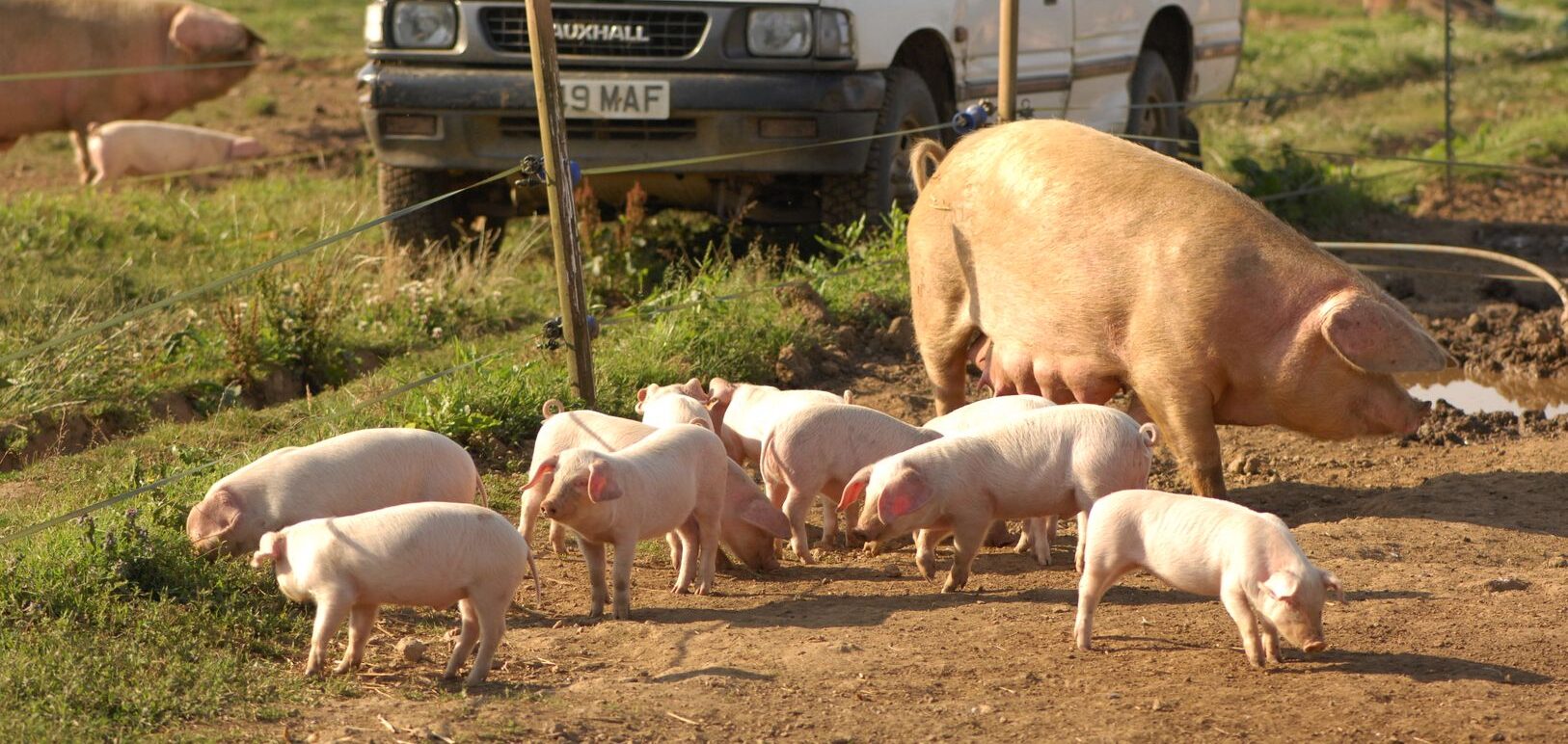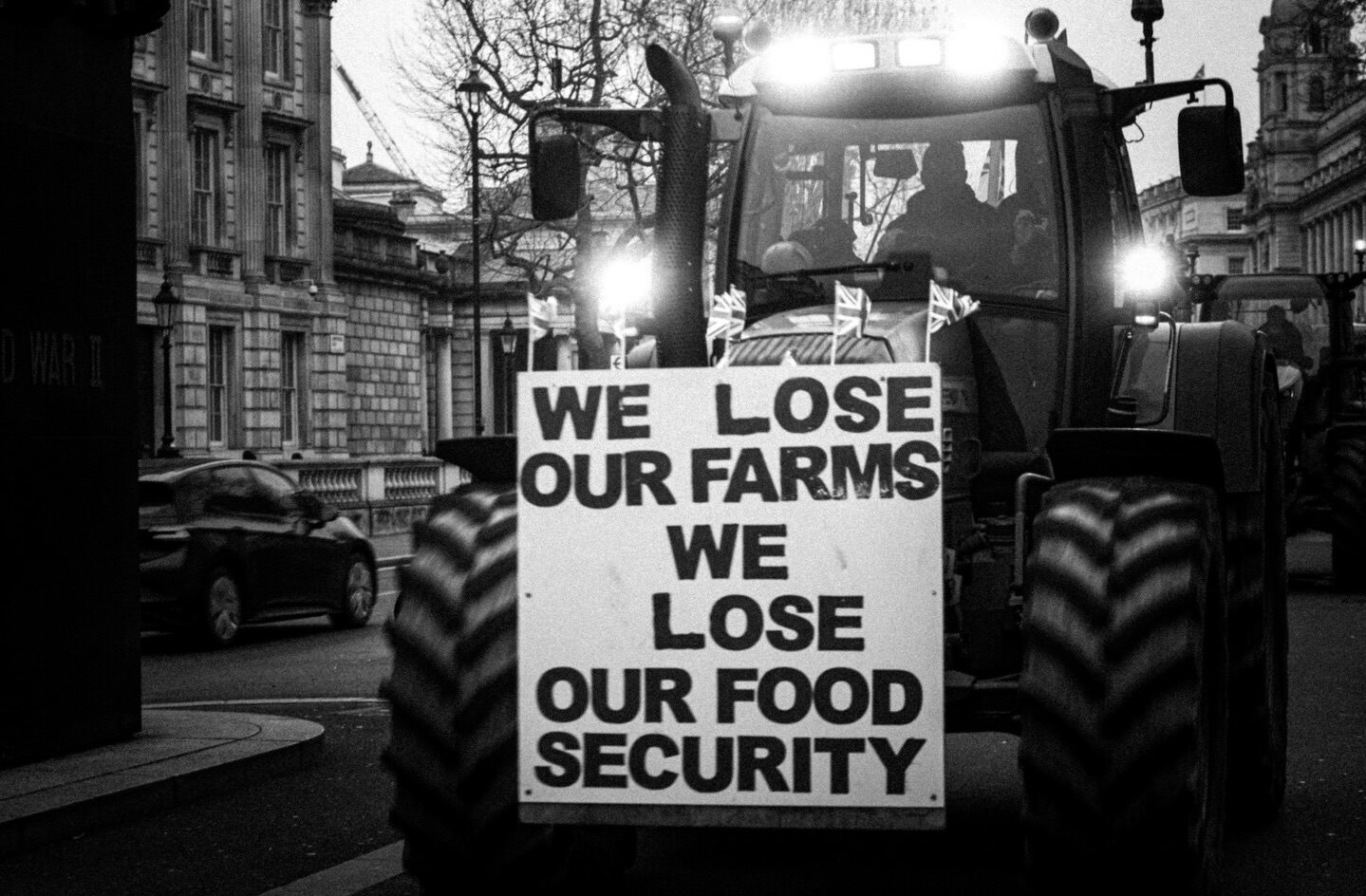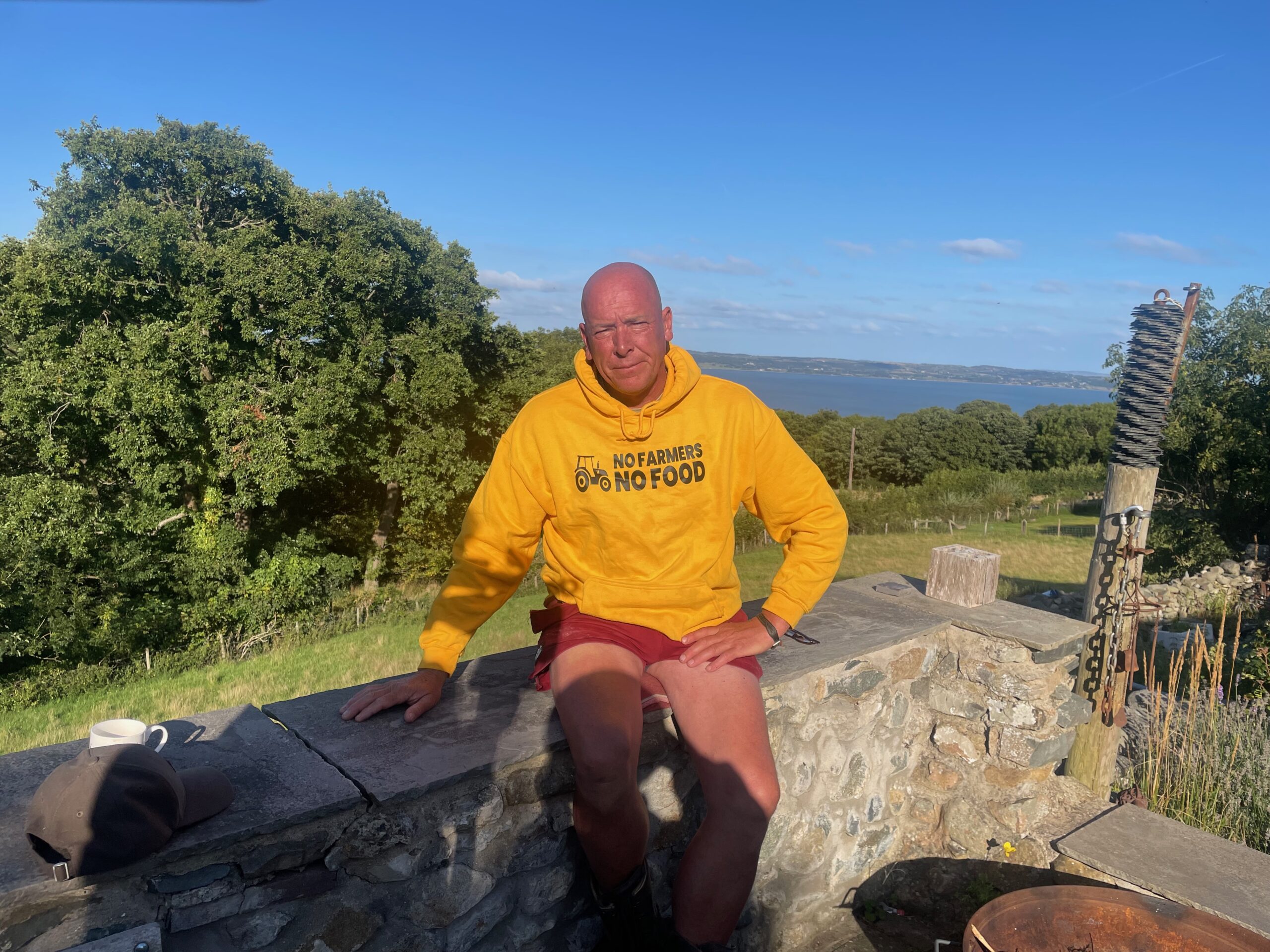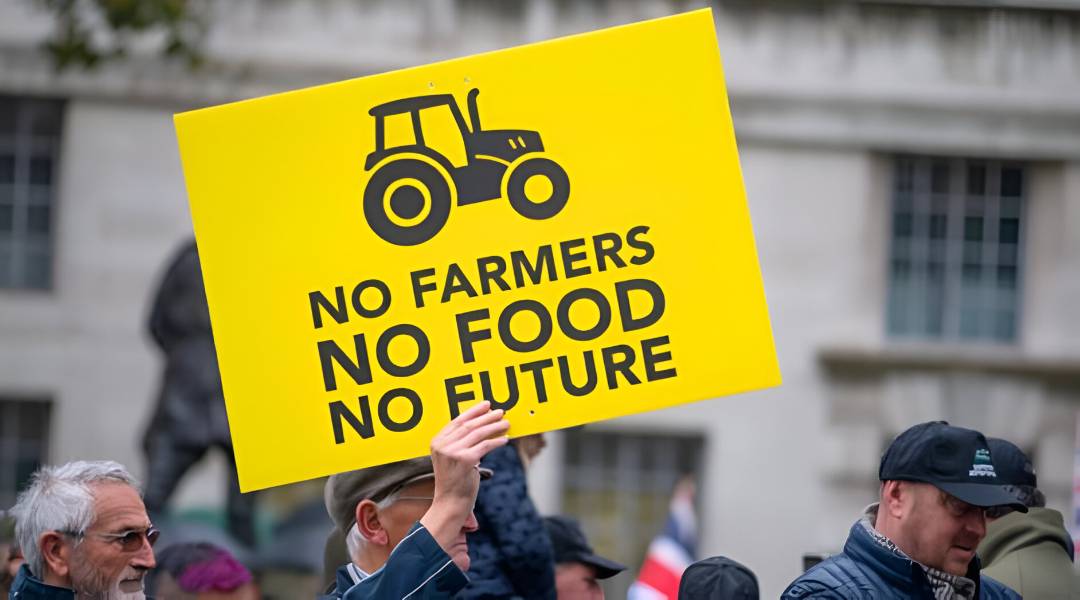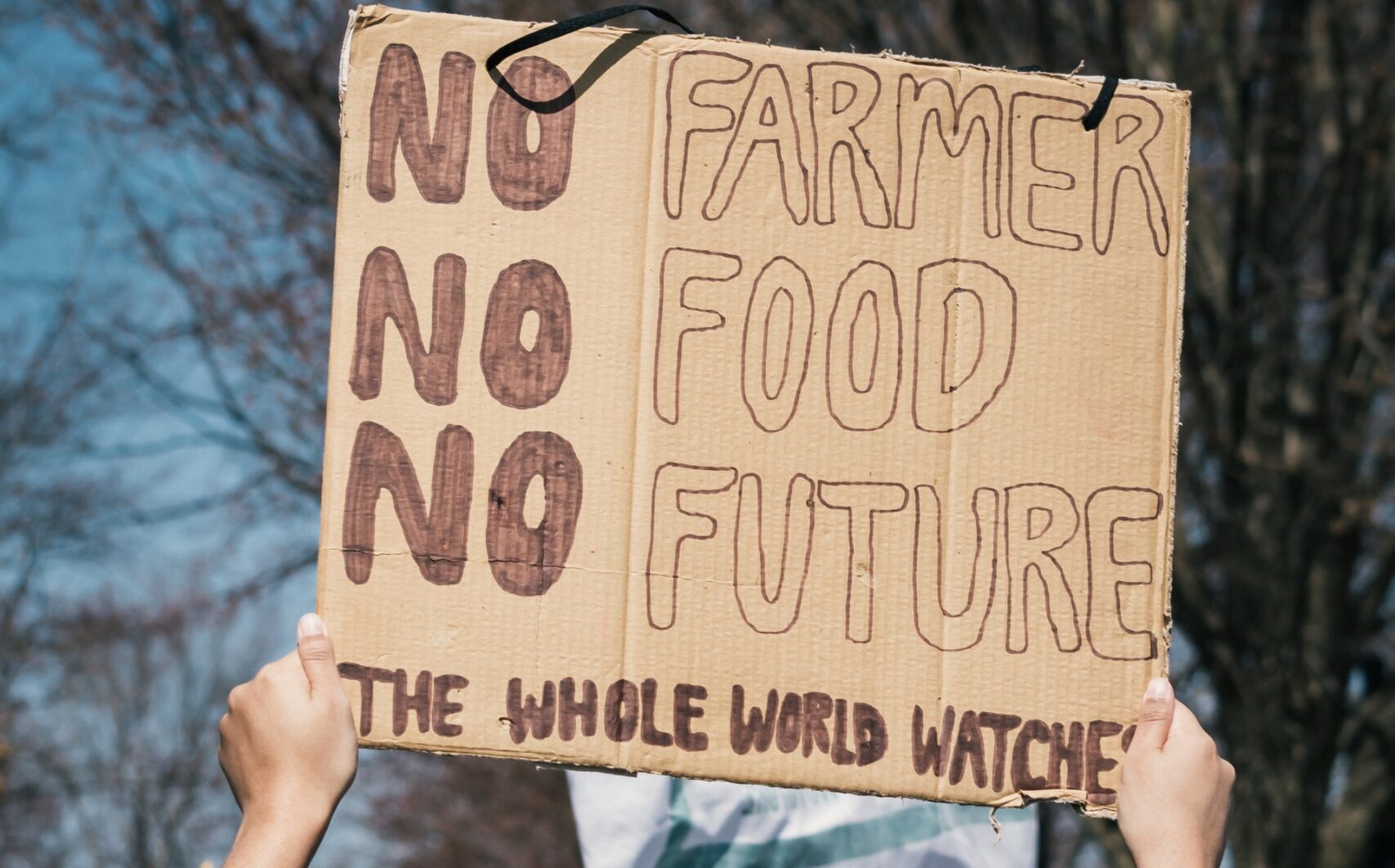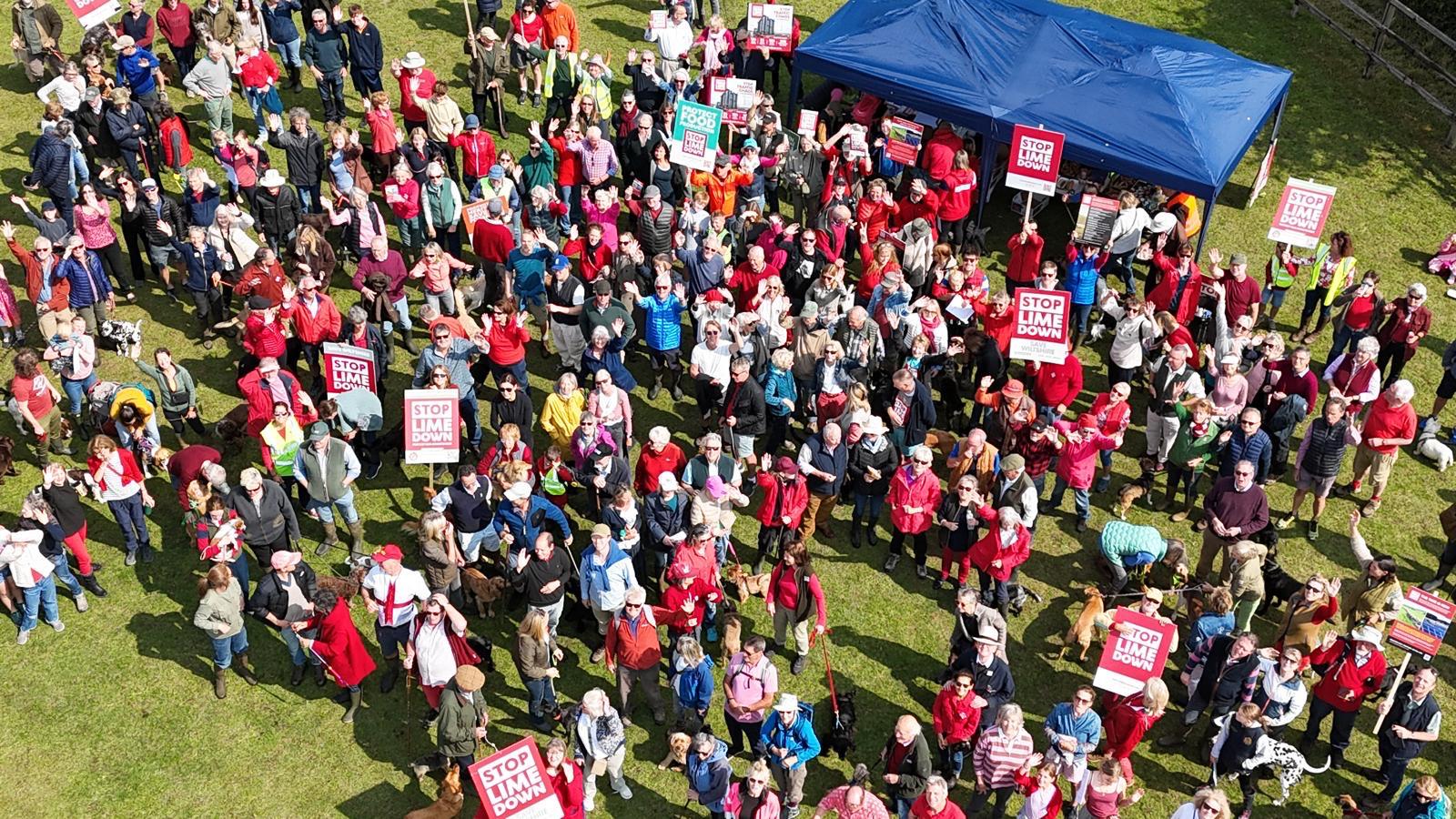Rooting for Real Farms Series
Cyrus Todiwala OBE, celebrity TV chef and proprietor of Cafe Spice Namaste, stars in the second episode of our new ‘Rooting for Real Farms’ video series. In these videos, top chefs team up with high welfare farmers like Giles Eustice from Trevaskis farm in Cornwall, urging people to end factory farming by using the power of their purse to only buy from local, high welfare farms.
Technocratic world is hijacking the green movement
In January, the environment, food and rural affairs secretary George Eustice told the online Oxford Farming Conference that farmers must “stand their ground” and ensure that the rising costs they face are reflected in the prices paid to them by supermarkets. This rhetoric is unrealistic. Of course farmers want to receive a fair price, but unless they follow the Canadian truckers and Indian farmers example to block the arteries of London with their tractors, the government is not going to regulate monopoly retailers and processors to pay farmers a fair price. Retailers control the market and if there’s any glitch in the profits they can make from UK farmers, they simply source substandard, factory farmed meat from abroad.
Patrick Holden, Director of the Sustainable Food Trust and dairy farmer near Lampeter, knows first-hand that the decline in small and medium-sized agricultural businesses in Britain is largely because of the big retailers’ “amoral” buying policies.
“Government wants food prices kept down, but the only way to do that in this country is through this tyranny of exploitation, continually screwing down the prices paid to producers.
“And if a producer doesn’t sell to them, you go quietly out of business. But we’re all complicit. We shop in supermarkets, we own shares in them, our pension funds are in them. We have to question this way of providing cheap food”.
The Venezuelan example
Obviously, dairy farmers should be paid a price that covers, at the very least, the costs of producing milk. In 2014 the Venezuelan Government brought in a Fair Price Law limiting costs, prices and profit margins across the Venezuelan economy. If Venezuela can do it, why can’t the UK?
Technocratic world
Many farmers thought that these protective measures would become possible by voting for Brexit. However, the demise of UK farmers continues apace as the playing field continues to be deliberately tilted against them with R&D and equity investments poured into high tech farming.
In the new technocratic world, grazing animals and real farmers are increasingly replaced by; GM and gene-edited food mono crops and factory farmed livestock, chemical and fertiliser intensive food and biofuels, robots, drones, driverless tractors, insect factories, fake meat laboratories, pig organ transplant factories and greenhouses with hydroponically grown, nutritionally deficient greens alongside miles of solar panels and coniferous forests to absorb industries’ carbon. In Tony Gosling’s excellent weekly podcast, Katharine Gun, GCHQ’s 2003 Iraq war whistleblower summaries this new technocratic era 19mins into her interview;
“Technocracy began in the early 1930s and it had to go underground because, like the concept of eugenics, it became unpalatable after the second world war. It reemerged in the 1970s with David Rockafeller and Brzezinski in the Trilateral Commission, and the concept that got pushed into what we now see as Agenda 30, Sustainable Development Goals, The Great Reset and Build Back Better that are code words for a plan and structure of technocracy; a system of governance where the technocratic elite run the world in very scientific and technocratic ways, categorising everything, quantifying everything and giving a (financial) value to everything including the entire ecosystem and human beings.”
Righting wrong solutions
There is a massive push back from real farmers and their representatives, against many of the technocratic measures to meet net zero carbon. We are being urged to shun meat and eat heavily patented lab meat whereas the better solution is to shun factory farmed meat and eat better real meat ie from pasture fed livestock as the grass roots and micro organisms sequester carbon. Rob Percival, head of food and policy at the Soil Association said;
“Nature-friendly, agroecological farming can feed a growing population, but only if we eat less and better meat, ensuring what we do eat is high welfare, so that we can eliminate intensive animal farming and all the risks it poses to animal welfare, habitats for wildlife, and human health.”
“grazing cattle could support healthy soils and nature, but that big reductions in the intensive production of poultry were needed, as cheap chicken production was driving river pollution in the UK, as well as deforestation in South America through imported soy.”
‘He called for an end to post-Brexit trade deals that would open the door to low-welfare food with a high carbon footprint.’
Vicki Hird, head of sustainable farming at the campaigning organisation Sustain, said
“The government could help by incentivising the production of sustainable, pasture-fed beef and only choosing less but better meat and more plants in public procurement contracts. The government spends £2bn a year on food and could be a lot smarter and do a lot more good with what it buys.”
A bribe to get out of farming
Unbelievably DEFRA is still depriving farmers of any direction as to what is required of them to qualify for the payments promised by the government’s pledge of ‘public money for public goods’. Instead, if they choose to retire, they are being offered a lump sum of all the payments that are due to them over the next seven years when their EU equivalent subsidies end. This deprives the new farmer of any of the payments due under the EU scheme.
‘A report by Parliament’s public accounts committee (PAC) notes that the Department for Environment, Food and Rural Affairs (DEFRA) has repeatedly missed its planned milestones for unveiling the new green payments system – the Environmental Land Management scheme, based on payments for environmental work (Financial Times).
PAC echoed farmers’ concerns that its incentives to convert farmland to other uses, such as forestry, will lead to an increase in food imports, effectively “exporting” the ecological impact of food produced for UK plates.
Food security could be affected by long-distance supply chains if the UK becomes even more reliant on imports.’
Systemic breakdown
With the pandemic-related isolation policies, the intrinsic volatility of factory farming is glaringly obvious. The number of pigs euthanized on farms, and thereby taken out of the food chain, is now reaching 189,000. As usual the pig industry is asking the government for solutions that treat the symptoms of breakdown; namely more work visas for Eastern Europeans to work in the volatile processing companies, supermarkets buying more British pork, and subsidies to prevent the immediate collapse of the pig industry.
Instead we must treat the root cause by moving away from a centralised system of mass produced animals stuffed with antibiotics to keep them alive, trucked inhumanely long distances to a few large factory style abattoirs to be cruelly killed and processed into meat that is transported to a monopoly of vast retail outlets who push the prices ever further down due to our mantra of competition that facilitates the race to the bottom of welfare and food safety standards here and abroad.
UK lagging behind the EU’s reduction in Antibiotic use
What hope is there for our farmers to reduce farm antibiotics when the rest of the world has no interest in curbing their use? So, no surprise that our government has failed to adopt the EU’s introduction of a ban on prophylactic and metpholatic antibiotic use.
‘Antibiotic use is the main driver of antimicrobial resistance, one of the biggest threats to human and animal health. Reducing its use in farming is seen as critical, with about two-thirds of antibiotics globally given to animals.
From today [28 January], a ban on the administration of antibiotics to groups of healthy animals comes into force across the EU.
As a result, European farmers will be able to use antibiotics as a preventive measure only in exceptional cases when there is a high risk of infectious disease, and then only with individual animals.’
Wake up call
Antibiotic resistance and animal farming is killing people today but the current death rate is nothing like the high toll in pandemics that may follow.
‘Many believe that drug-resistant bacteria, many of which are born on factory farms, could be the cause of the next pandemic. And while that may seem like a problem for another day, the reality is that millions of people are already being affected by the rise of these vicious superbugs.
Health officials and experts around the world are sounding the alarm. A new study uncovered that in 2019, 1.2 million deaths were due to antibiotic-resistant infections, and as many as 5 million deaths that year were indirectly related to antibiotic resistance.’
With their backs against the wall, some farmers cut corners by breaking animal welfare laws and committing food fraud; as described by The Sustainable Food Trust,
‘Due to the increased power of supermarket retailers and the rise of just-in-time supply chains, farmers are on increasingly tight margins. Many struggle to remain profitable and will be further stretched by the reduction in basic payments over the next few years. This offers a huge motivation for food fraud, where farmers either stretch their yield by tweaking their product or pass off one product for another.’
Solutions to the root causes of breakdown
The food system should be systematically broken up into a network of small-scale high welfare farmers, abattoirs and butchers, along with chemical free food grown in gardens in city centres and hinterlands.
Compassion in World Farming lists the urgent and vital changes needed;
“Pigs should also be fed by-products and unavoidable food waste rather than cereals and soy that fuel deforestation and loss of wildlife habitat in places like the Amazon and Indonesia,” “Improved pig welfare should be an inherent part of a pig industry fit for a sustainable future. This means no factory farming, a phase out of farrowing crates, an end to the use of sows producing large litters and full compliance with the ban on routine tail docking. And this must be safeguarded by the introduction of a ban on the import of all pork products produced to welfare standards lower than in the UK.”
As Patrick Holden, Director of The Sustainable Food Trust;
“It needs the whole of the country moving to a regenerative system, suited to different climate zones and soils, restoring the connection to “eating from the landscape where you live”, as Holden put it. “If we are going to move away from our umbilical dependence on chemicals, we need to return to mixed farming, with grass and clover to build soil fertility.”
The book Regenerative Agriculture offers a clear and pragmatic approach to designing, installing and managing profitable small farms, and is built around Richard Perkins’s tireless work to restore the dignity to rural stewardship through intelligent human-scale farming.
Citizens verses corporations
If our future was in the hands of citizens, through local and regional citizens assemblies, we could take back control and end the present capture of the political process by a few psychopathic technocrat billionaires like Bill Gates. Through his tax free philanthro-capitalist brainchild, the Alliance for a Green Revolution in Africa (AGRA), he will continue to multiply his corporate investments by syphoning profits off farmers.
Like the vaccines that did not live up to the promise, new ideas, rushed into practice in a push for excessive profit for a few giant companies, fail to deliver. This, from The Elephant, is a call for wisdom to prevail:
“AGRA has unequivocally failed in its mission to increase productivity and incomes and reduce food insecurity, and has in fact harmed broader efforts to support African farmers,”
The AGRA Vice President for Innovation, Aggie Asiimwe Konde, disagreed but her response actually highlighted the holes in their model.
“We focus on informing farmers, enable access to technology and increase production and income to farmers. We have had a resounding success in that we have seen farmers doubling their income (FNF: many African farmers operate on cash or barter in local markets so only industrial scale farmers would benefit from the claimed increase in income), diversification of crops (FNF: away from the needs of local diets crops such as millet, which are drought-tolerant and more nutritious), and integration into the market (FNF: this integration means more food for export markets and so less for local people).”
Cooking the books
Lobbied by Gates’s billions, the UN’s FAO now claims that the world is fed by large scale farmers. However, a group of 9 NGOs who represent peasant farmers expose major inaccuracies. GRAIN, a small international non-profit organisation that works to support small farmers and social movements in their struggles for community-controlled and biodiversity-based food systems, reports;
‘The paper is not only a clumsy departure from FAO’s previous research and positions, it also feeds into an agribusiness narrative anxious to play down the importance and effectiveness of peasant production in order to build support for their proprietary technologies, subsidies, and regulatory needs.
With these contradictions, the FAO paper concludes that the world’s small farms only produce 35% of the world’s food using 12% of agricultural land. In contrast, the letter’s signatories, working with FAO’s normal or comparable databases, estimate that peasants nourish at least 70% of the world’s people with less than one third of the agricultural land and resources.’
Pilloried truth sayers
When voices dare speak out to counter the authodox neoliberal narrative, as with the persecution of Julian Assange, they are smeared in the mainstream media.
In 2020, Spain exported 2.78 million tonnes of pig meat (including offal), up 23% from 2019. Clearly, this is a money spinner for some. So, when a Spanish politician Garzón said that industrial mega-farms aren’t “at all sustainable” and that “they pollute the soil, they pollute the water and then they export this poor-quality meat from these ill-treated animals”, the meat industry, sensing a threat to its profit margins, took offence. Industrial meat producers like the Fuentes Group in Murcia started a media campaign claiming that Garzón had described all Spanish meat as inferior. All other national media then repeated the lie, whipping up a frenzy against Garzón as a traitor to his country and prompting calls for him to resign.
Hero
My heart goes out to campaigners like Jane Tredgett, founder of Scrap Factory Farming, who has put her home on the line to fund a judicial review to end factory farming.
Sadly, the campaign has fallen at the first hurdle;
“The Judge has today, at this stage, refused permission to progress to a judicial review on factory farming. Our legal team strongly disagree with the grounds and will be making an appeal”.
Please donate
Forgive me for pointing out that, while we receive some one-off donations, I am funding Farms Not Factories myself, and if we are to continue to fight the cruel, antibiotic-led factory farm system, we will need some regular donations from like-minded people. Please consider a monthly subscription of £2/month and help us support a network of smaller scale, humane and healthy UK pig farms, local abattoirs and butchers.
“Our message is simple, we want to help bring an end to this dangerous, inhumane system. Vote for real farming over factory farming.”
– Tracy Worcester, Director
Contents
Share This Article
Related ArticlesView All
Protect UK Farmers from Low Standard Imports
The purpose of our newsletter is to give you important information that is censored in the mainstream media. “The way… Read More
Protectionism vs So-Called Free Trade
The purpose of our newsletter is to give you important information that is censored in the mainstream media. “The way… Read More
Find A Farmer
The purpose of our newsletter is to give you important information that is censored in the mainstream media. “The way… Read More
Zionist Money Rules
The purpose of our newsletter is to give you important information that is censored in the mainstream media. “The way… Read More
The Price of Progress
The purpose of my newsletter is to give you important information that is censored in the mainstream media. “The way… Read More
Silencing Dissent Through Fear
The purpose of my newsletter is to give you important information that is censored in the mainstream media. If you… Read More
